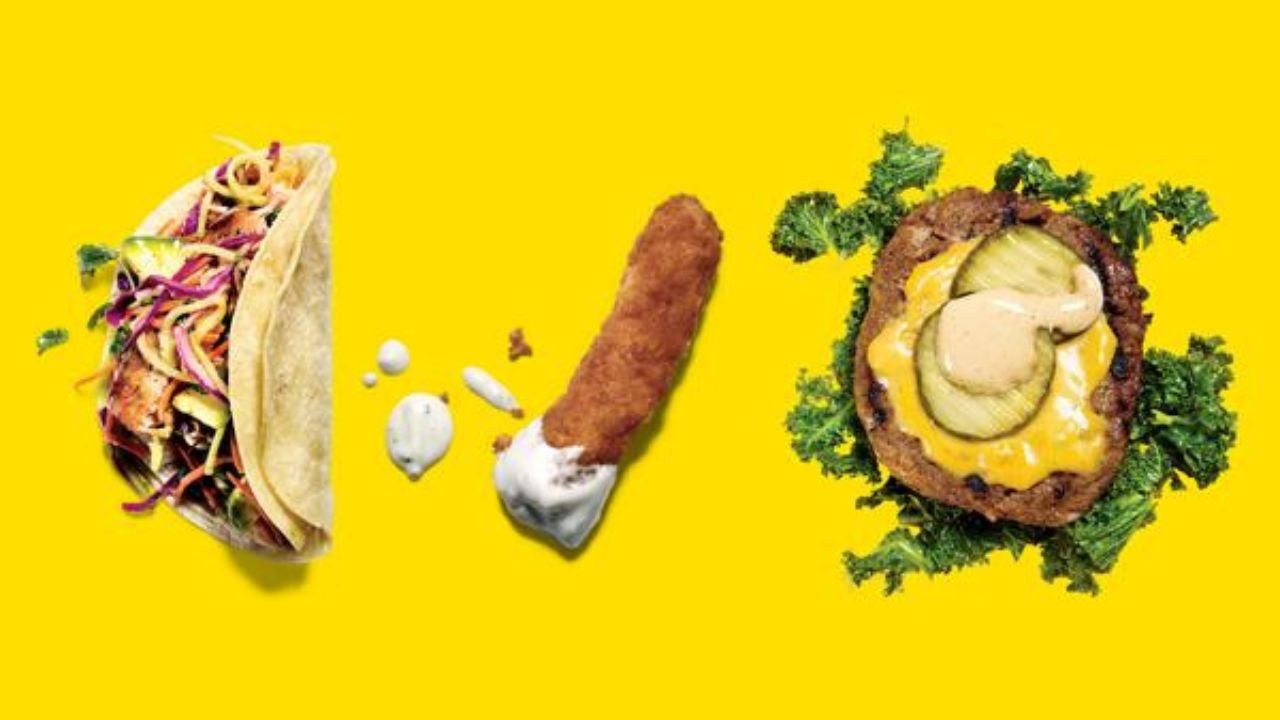Owning a McDonald’s franchise allows entrepreneurs to run a renowned fast-food restaurant. With a global brand, extensive support, and a proven business model, franchisees benefit from strong customer loyalty and significant revenue potential, making it a popular choice for aspiring business owners.
- McDonald’s franchise ownership offers a lucrative business opportunity with the backing of a globally recognized brand.
- Owning a McDonald’s franchise allows entrepreneurs to leverage a proven business model with extensive training and support.
- The initial investment for McDonald’s franchise ownership can be substantial, but the potential for high returns attracts many investors.
- McDonald’s franchise ownership provides a steady revenue stream, though profitability varies based on location and management.
- With McDonald’s franchise ownership, you’re not just buying a restaurant; you’re joining a network of dedicated and successful business owners.
- The path to McDonald’s franchise ownership includes rigorous vetting and training to ensure adherence to the company’s high standards.
- While McDonald’s franchise ownership comes with challenges, the potential rewards make it a sought-after opportunity in the fast food industry.
Initial Investment and Ongoing Costs
- The initial investment for a McDonald’s franchise can range from $1 million to $2.2 million, including the franchise fee of $45,000.
- Ongoing costs for a McDonald’s franchise include royalties, which are typically 4% of gross sales, and a service fee, which is 4% of monthly sales.
- Real estate and construction costs are significant components of the initial investment, often accounting for more than half of the total outlay.
- Franchisees must also consider ongoing expenses such as staff salaries, food supplies, maintenance, and marketing contributions.
- Equipment costs for a new McDonald’s franchise can range from $750,000 to $1.2 million, depending on the location and size of the restaurant.
- McDonald’s requires franchisees to have a minimum of $500,000 in non-borrowed personal resources to be eligible for ownership.
- In addition to the initial and ongoing costs, franchisees must budget for periodic remodels and upgrades to keep the restaurant in line with the company’s brand standards.
Average Annual Revenue of a McDonald’s Franchise
- On average, McDonald’s franchisees generate around $2.7 million in annual revenue per restaurant.
- A typical McDonald’s franchise earns approximately $2.5 to $3 million in yearly sales.
- Franchisees of McDonald’s can expect their restaurants to bring in about $2.7 million in revenue each year.
- The annual revenue for an average McDonald’s franchise is roughly $2.7 million.
- Most McDonald’s franchise locations report yearly revenues between $2.5 million and $2.7 million.
- The expected yearly revenue for a McDonald’s franchise hovers around $2.7 million.
- McDonald’s franchise owners typically see annual revenues close to $2.7 million per restaurant.
- Each McDonald’s franchise restaurant generates an average of $2.7 million in revenue per year.
- On a yearly basis, a McDonald’s franchisee can anticipate revenue figures in the ballpark of $2.7 million.
- The revenue for an average McDonald’s franchise is approximately $2.7 million annually.
Factors Influencing Franchise Profitability
- Location: The success of a franchise often hinges on its location. High-traffic areas can significantly boost revenue, while poor locations can lead to underperformance.
- Operational Efficiency: Streamlined operations and effective management practices are key to maximizing profitability in a fast-paced environment like McDonald’s.
- Marketing and Branding: Strong marketing efforts and brand recognition play a crucial role in attracting and retaining customers, directly impacting sales.
- Cost Control: Effective cost management, from labor to supplies, is essential for maintaining healthy profit margins in a franchise business.
- Quality of Service: Consistent, high-quality customer service can drive repeat business and enhance profitability for franchise owners.
- Local Market Conditions: Understanding and adapting to local market conditions, including competition and economic trends, can greatly affect a franchise’s success.
- Franchise Fees and Royalties: The structure and amount of franchise fees and ongoing royalties can influence the overall profitability of a McDonald’s franchise.
- Employee Management: Hiring, training, and retaining skilled employees are vital for operational efficiency and customer satisfaction, which in turn affect profitability.
- Innovation and Menu Development: Regularly updating the menu and introducing new products can attract customers and increase sales, contributing to higher profits.
- Support from the Franchisor: The level of support provided by McDonald’s, including training, marketing, and operational guidance, can significantly impact the success of individual franchises.
Comparison with Other Fast Food Franchises
- Location is one of the most critical factors affecting a McDonald’s franchise’s profitability. High-traffic areas with good visibility can significantly boost sales.
- The Efficiency and effectiveness of the management team play a crucial role in maximizing a franchise’s profits. Well-trained managers can optimize operations and reduce costs.
- Local market conditions, including economic trends and competition, heavily influence a franchise’s revenue potential. A strong local economy and limited competition often lead to higher profitability.
- Marketing and community engagement efforts are essential for a franchise’s success. Effective local marketing can drive customer traffic and enhance brand loyalty.
- Consistency in food quality and customer service directly impacts customer satisfaction and repeat business, which are vital for long-term profitability.
- Operational costs, such as labor, utilities, and food supplies, must be managed efficiently to maintain healthy profit margins. Lowering these costs without compromising quality is key.
- The ability to adapt to changing consumer preferences and market trends can significantly influence a franchise’s profitability. Staying relevant with menu offerings and promotions is crucial.
- Support and training provided by McDonald’s corporate headquarters can greatly impact a franchise’s success. Continuous support helps franchisees navigate challenges and implement best practices.
Success Stories of McDonald’s Franchise Owners
- From starting as a crew member to owning multiple franchises, McDonald’s has given me the platform to achieve my entrepreneurial dreams. – John Smith, Multi-Unit Franchisee
- The training and support provided by McDonald’s were instrumental in my journey from a single store operator to one of the largest franchisees in the region. – Maria Gonzalez, Regional Franchise Owner
- Owning a McDonald’s franchise has not only provided financial success but also allowed me to give back to my community through various local initiatives. – Ahmed Khan, Community Leader and Franchisee
- I took a leap of faith investing in my first McDonald’s, and today, I’m proud to say it was the best decision of my life. – Lisa Thompson, Long-Time Franchise Owner
- The global recognition and trust in the McDonald’s brand have been key factors in my business’s growth and sustained profitability. – Peter Wong, International Franchise Operator
- Starting with just one location, I’ve expanded to five stores, each contributing significantly to my overall success and personal fulfillment. – Sandra Lee, Multi-Store Franchisee
- The comprehensive support system provided by McDonald’s has been a cornerstone in navigating the challenges of the fast-food industry. – David Brown, Veteran Franchisee
- I attribute my success to the robust franchise model and the continuous innovation that McDonald’s brings to the table. – Emily Davis, Successful Franchise Owner
- My journey with McDonald’s has been transformational, turning my small investment into a thriving business that supports my family and community. – Michael Robinson, Proud Franchisee
Challenges Faced by McDonald’s Franchisees
- Managing labor costs and maintaining a consistent quality of service is a daily struggle for McDonald’s franchise owners.
- Franchisees often face significant pressure from the corporation to renovate and update their stores, which can be financially burdensome.
- Navigating the complex regulations and compliance requirements set by McDonald’s can be overwhelming for many franchisees.
- Maintaining profitability can be challenging due to the rising costs of ingredients and supplies.
- Franchisees sometimes feel constrained by the corporation’s strict operational guidelines, limiting their ability to innovate locally.
- Competition from other fast food chains and local restaurants can significantly impact the revenue of a McDonald’s franchise.
- Adapting to changing consumer preferences and dietary trends requires continuous investment and strategic planning.
- Franchise owners often struggle with high turnover rates among staff, which affects service consistency and operational efficiency.
- Economic downturns and market fluctuations can drastically affect sales, making financial stability a major concern.
- Balancing the demands of corporate promotions and local marketing initiatives can be a delicate and challenging task.
- Handling customer complaints and maintaining high levels of customer satisfaction is an ongoing challenge for franchise owners.
Financial Support and Resources for Franchise Owners
- McDonald’s offers comprehensive financial support to franchise owners, including assistance with financing options and access to capital.
- Franchise owners benefit from McDonald’s global purchasing power, which helps negotiate favorable pricing for equipment, supplies, and ingredients.
- Training and development programs provided by McDonald’s are invaluable resources for franchise owners, enhancing operational efficiency and customer satisfaction. Continuous research and development initiatives by McDonald’s ensure that franchise owners stay updated with industry trends and consumer preferences.
- McDonald’s provides marketing support to franchise owners, including national advertising campaigns and localized promotional materials.
- Franchise owners have access to a network of experienced professionals and mentors within the McDonald’s system, offering guidance and support.
- McDonald’s offers technology solutions to franchise owners, facilitating order management, inventory tracking, and employee scheduling.
- Financial management tools and resources provided by McDonald’s assist franchise owners in budgeting, forecasting, and optimizing profitability.
- McDonald’s franchise owners can participate in incentive programs and rewards schemes, encouraging performance and loyalty.
- Supportive franchisee associations and forums foster collaboration and knowledge-sharing among McDonald’s franchise owners.
- McDonald’s regularly updates its menu offerings and introduces new products, providing opportunities for franchise owners to capitalize on consumer demand.
- Access to McDonald’s extensive real estate network assists franchise owners in identifying prime locations for new restaurants and expanding their footprint.
- McDonald’s invests in sustainability initiatives and environmentally friendly practices, supporting franchise owners in reducing operational costs and enhancing brand reputation.
Future Trends in Fast Food Franchising

- Virtual kitchens and ghost kitchens are reshaping the future of fast food franchising, offering cost-effective and innovative solutions.
- Sustainability will become a key focus for fast food franchises, with a shift towards eco-friendly packaging, ingredients, and operations.
- Personalization and customization will drive customer engagement, with fast food franchises leveraging technology to offer tailored experiences.
- Health-conscious consumers will continue to demand healthier options, leading to the proliferation of plant-based menus and nutritious alternatives.
- Mobile ordering and delivery will dominate the fast food landscape, with franchises investing heavily in seamless digital platforms and delivery networks.
- Automation and robotics will streamline operations, reducing labor costs and improving efficiency in fast food franchising.
- Localization will play a significant role, with franchises adapting menus and marketing strategies to cater to diverse regional tastes and preferences.
- Franchise partnerships with third-party vendors and brands will expand, creating unique collaborations and cross-promotional opportunities.
- Data analytics will drive decision-making, with franchises harnessing customer data to optimize menus, pricing, and marketing campaigns.
- Community engagement and social responsibility will be paramount, with fast food franchises actively contributing to local initiatives and sustainable practices.
Conclusion
Owning a McDonald’s franchise can be financially rewarding due to its established brand, global presence, and proven business model. However, success depends on location, market conditions, and operational Efficiency. While the initial investment and ongoing costs are substantial, diligent management and adherence to McDonald’s standards can make it a lucrative venture for dedicated entrepreneurs.
FAQ
How Much Profit Do McDonald’s Owners Make?
McDonald’s franchise owners’ profit can vary widely depending on factors such as location, sales performance, operating costs, and management efficiency. On average, McDonald’s franchisees in the United States reportedly make profits ranging from $150,000 to $500,000 annually. However, individual results may differ significantly.
What is the Most Profitable Franchise to Own?
Determining the most profitable franchise can be subjective and dependent on factors such as initial investment, location, market demand, and individual business management. However, some franchises consistently rank among the most profitable, including fast food chains like McDonald’s, Dunkin’, and Taco Bell, as well as service-based franchises like 7-Eleven, UPS Store, and RE/MAX real estate. Ultimately, thorough research and careful consideration of personal goals and resources are essential in selecting the most profitable franchise opportunity.
What is the Profit Margin for McDonald’s?
The profit margin for McDonald’s can vary depending on factors such as location, operating costs, and sales performance. In recent years, McDonald’s has reported a global profit margin of around 22%. However, it’s essential to note that profit margins may differ between individual franchise locations and corporate-owned stores.
Who Owns the Most McDonald’s Franchises?
The title for the individual or entity owning the most McDonald’s franchises can change over time due to acquisitions, expansions, or divestitures. Historically, individuals like Don Thompson, the former CEO of McDonald’s, and entities like Arcos Dorados Holdings Inc., the largest McDonald’s franchisee in Latin America, have held significant franchises. However, it’s best to refer to recent business news or McDonald’s corporate announcements for the most current information.


